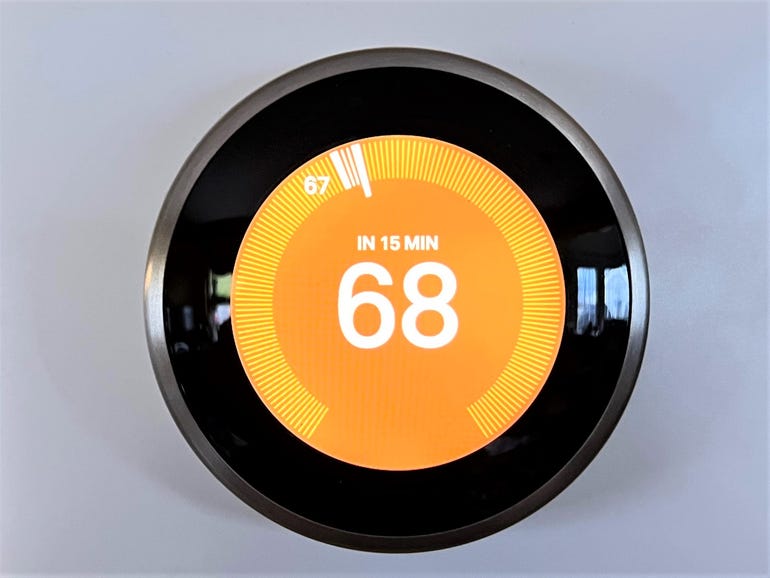Adobe gives up on Figma, Apple Watch sales halted and hackers access millions of accounts
Hey, folks, welcome to Week in Review (WiR), TechCrunch’s regular newsletter that recaps the top tech — and tech-related — stories over the past several days. With the holiday around the corner, this reporter expected a quieter week. But the opposite happened — there’s been no shortage of stories to write about.
In this edition of WiR, we cover Comcast and Mr. Cooper customer data being stolen, electric scooter company Bird filing for bankruptcy, Adobe ending its Figma acquisition plans, and Apple being forced by the International Trade Commission (ITC) to halt sales of the Apple Watch. We also spotlight Nikola founder Trevor Milton’s securities fraud sentencing, Microsoft’s Copilot chatbot getting a music generation feature and Consumer Reports’ impression of Tesla’s Autopilot recall fix (spoiler: it’s not good).
It’s a lot to get through, so we’ll hop to it. But first, a reminder to sign up here to receive WiR in your inbox every Saturday if you haven’t already done so.
Most read
Hackers target Comcast: Comcast has confirmed that hackers exploiting a critical-rated security vulnerability accessed the sensitive information of almost 36 million Xfinity customers. The vulnerability, known as “CitrixBleed,” is found in Citrix networking devices often used by big corporations and has been under mass exploitation by malicious actors since August, Carly reports.
Mr. Cooper under fire: In related news, hackers stole the sensitive personal information of over 14.6 million Mr. Cooper customers, Zack writes. The mortgage and loan giant confirmed that the criminals stole customer names, addresses, dates of birth and phone numbers, as well as Social Security numbers and bank account numbers.
Adobe gives up: Adobe’s $20 billion mega-bid to buy rival Figma is now officially dead after the companies said this week that regulatory pushback in Europe caused them to end their acquisition plans. First announced in September last year, the deal was always going to attract regulatory scrutiny due to the size of the transaction and the fact that it took one of Adobe’s major rivals out of the picture, notes Paul.
Apple halts Apple Watch sales: Apple has halted the sale of its Series 9 and Ultra 2 smartwatch following an October ruling by the ITC owing to a patent dispute with California-based med tech firm Masimo. The dispute is over the blood sensor monitor on the latest flagship Apple Watches; Apple is appealing the ITC’s ruling.
Nikola founder sentenced: Trevor Milton, the disgraced founder and former CEO of electric truck startup Nikola, was sentenced on Monday to four years in prison for securities fraud. Rebecca writes that the sentence caps off a multi-year saga that at one point sent Nikola stock soaring 83% only to come crashing down months later over accusations of fraud and canceled contracts.
Copilot gets music writing skills: Microsoft’s AI-powered chatbot, Microsoft Copilot, can now compose songs thanks to an integration with generative AI (GenAI) music app Suno. Users can enter prompts into Copilot like “Create a pop song about adventures with your family” and have Suno, via a plug-in, bring their musical ideas to life.
Tesla fix “insufficient”: Following tests, Consumer Reports says Tesla’s fix for its Autopilot recall of over 2 million vehicles is “insufficient.” While the testing isn’t comprehensive, Sean notes, it shows questions remain unanswered about Tesla’s approach to driver monitoring — the tech at the heart of the recall.
Bird files for bankruptcy: Bird has filed for Chapter 11 bankruptcy, capping off a turbulent year for the electric scooter company. In a press release, Bird confirmed it had entered into a “financial restructuring process aimed at strengthening its balance sheet,” with the company continuing to operate as normal in pursuit of “long-term, sustainable growth.”
Audio
Need some listening material while prepping a holiday dish — or to tune out especially bothersome relatives? You’re in luck — TechCrunch’s podcasts will fit the bill.
On this week’s Equity, the second of a two-part series looking back at 2023, the crew recapped the fall of Silicon Valley Bank, FTX founder Sam Bankman-Fried’s long and tedious trial and OpenAI’s wild internal politicking.
Meanwhile, Found focused on Charlie Hernández and his journey of building My Pocket Lawyer, an online platform that’s meant to democratize access to legal advice and guidance for those who might not be able to afford a lawyer. Hernández talked about why he decided to put his law degree to use to tackle this problem.
And Chain Reaction featured Staci Warden, the CEO of the Algorand Foundation, the organization behind the layer-1 blockchain Algorand. Algorand is a Singapore-based blockchain that aims to be fast, secure, decentralized and “the greenest” with its carbon-negative network.
TechCrunch+
TC+ subscribers get access to in-depth commentary, analysis and surveys — which you know if you’re already a subscriber. If you’re not, consider signing up. Here are a few highlights from this week:
Etsy layoffs: Etsy recently announced that it would lay off 11% of its workforce — which comes as no surprise to those closely following the e-commerce segment, Anna writes. “Junkification” and fierce competition paint a tough path ahead, she predicts.
DEI backlash: Dom writes about the discouraging backlash against DEI (diversity, equity and inclusion), a framework to help create more conscious workplace initiatives to help marginalized communities, in the tech sector.
Figma’s rosy outlook: Anna writes about how, even without Adobe, things don’t look all that bad for Figma. CB Insights estimates that the startup is still worth between $8.3 billion and $9 billion.




